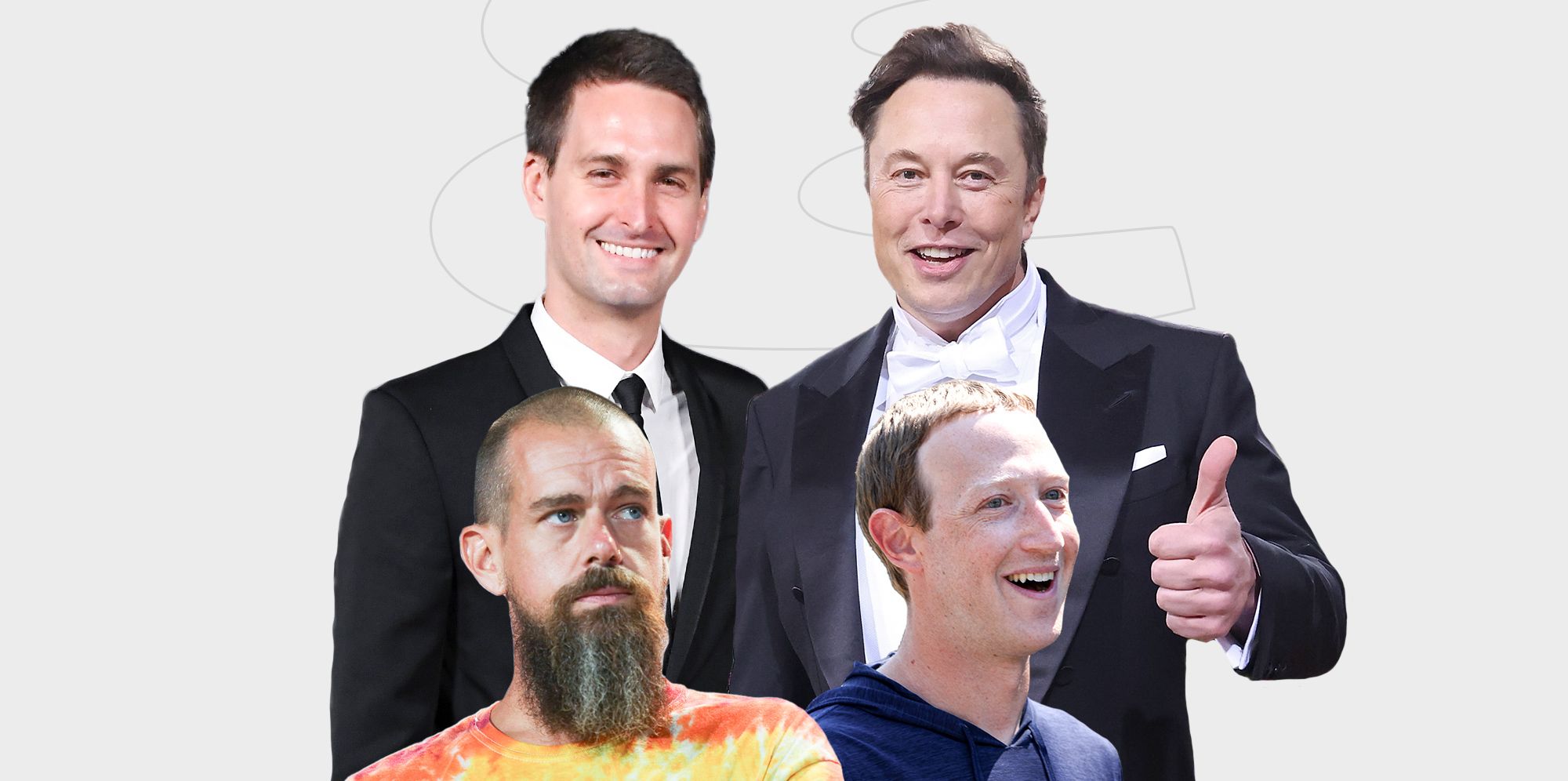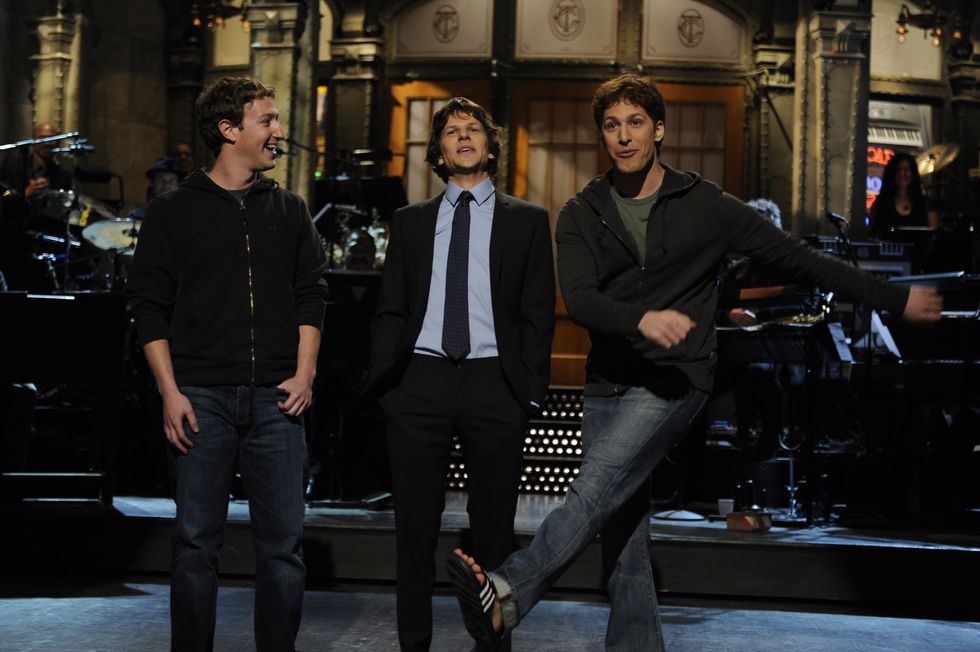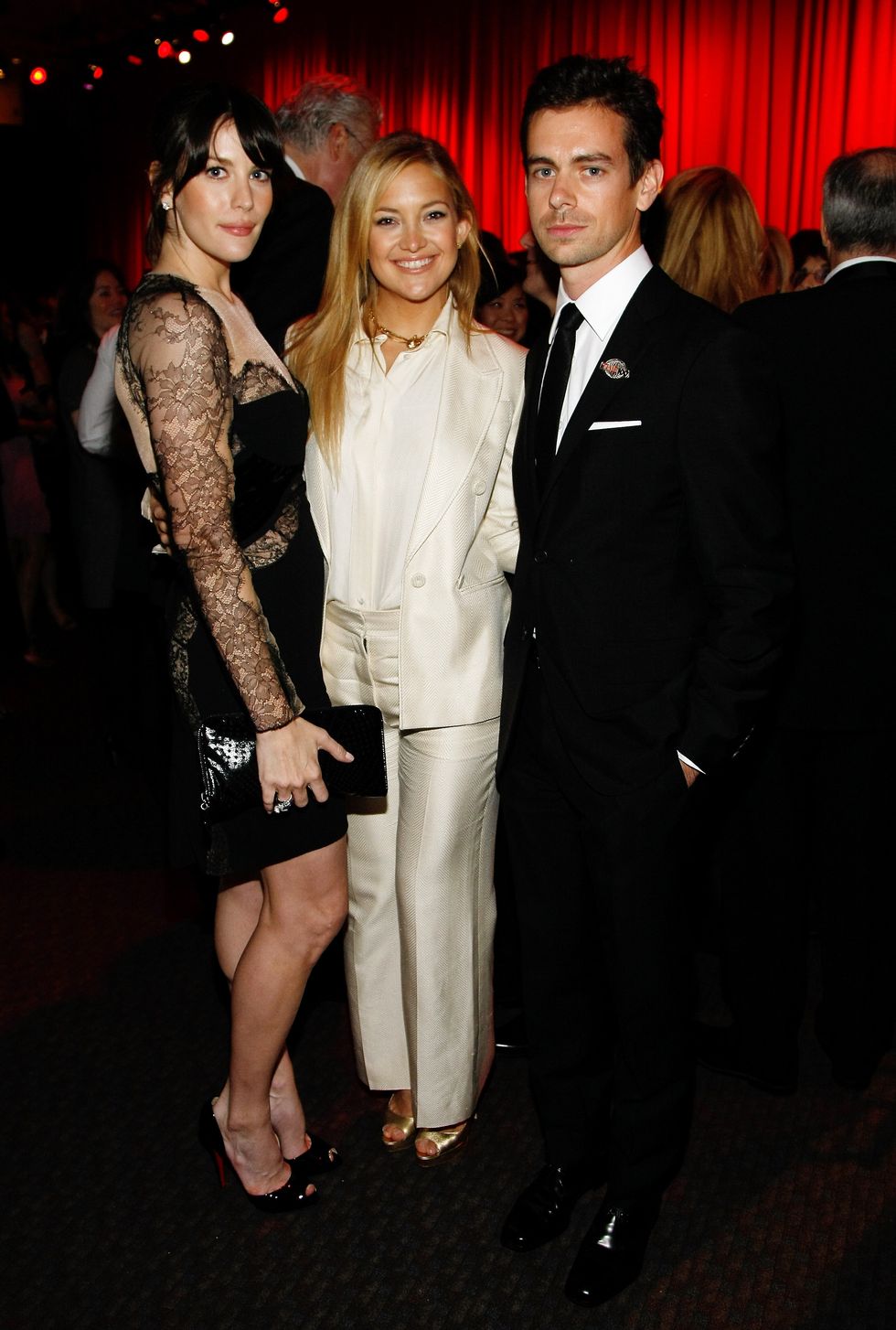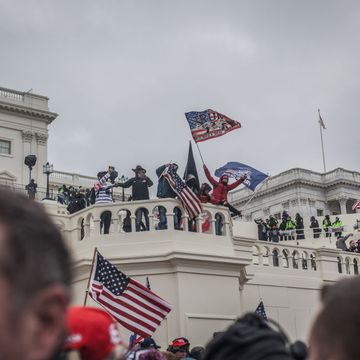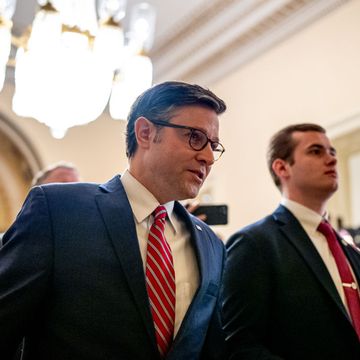When the AI-powered chatbots chronicle the history of the social media era, they will note that the myth of the Genius Social Platform CEO died on December 11, 2022, not with a data center outage or a violent mob spurred on by a Tweet or sweeping government regulation, but onstage at a comedy show. It was at San Francisco’s Chase Arena, to be precise, where comedian Dave Chappelle asked his audience to “make some noise for the richest man in the world,” aka Elon Musk, who subsequently stepped onto the stage. And noise they did make, though not the kind that Musk was expecting. This, after all, was San Francisco, the cradle of tech innovation, land of the creators and the disruptors who move fast and break things, the home of Twitter Inc., which Musk had recently purchased for $44 billion. And there he was, standing before an audience he considered to be his people: mostly alpha bros who enjoy transphobic, antisemitic, misogynistic “jokes.” And yet, there was no denying that they were booing.
For Musk, this was a novel experience, “a first for me in real life (frequent on Twitter),” he said in a now deleted Tweet after a video of the episode went viral, generating an echo chamber of ridicule on the very platform that he now owned.
A year earlier, almost to the day, Musk was being cheered as TIME’s Person of the Year, riding high as a bull market boosted his personal fortune to a peak of $340 billion, surpassing Amazon founder Jeff Bezos as the wealthiest man ever to inhabit earth. Musk was celebrated as “a madcap hybrid of Thomas Edison, P.T. Barnum, Andrew Carnegie, and Watchmen’s Doctor Manhattan, the brooding, blue-skinned man-god who invents electric cars and moves to Mars.” Tesla, his car company, was at the time worth $1 trillion, dominating the global market for electric vehicles. SpaceX, his privately held rocket company, had recently beat Bezos’s Blue Origin to secure a NASA contract to ferry astronauts to the moon. When he offered to buy Twitter in April of last year, the company’s founder and then-CEO Jack Dorsey said Musk was “the singular solution I trust.”
Nine months later, it’s clear to all but the most ardent Musketeers that, far from being the singular solution, Musk is creating problems. “This is a company that made $5 billion last year and was not in crisis. He came in and he started a crisis,” said tech journalist Casey Newton on the podcast On With Kara Swisher. After triumphantly entering Twitter’s headquarters carrying a sink–“let that sink in,” he Tweeted–he fired the company’s leadership, laid off thousands of employees (then subsequently asked dozens of them to return), Tweeted links to conspiracy theories, reinstated previously banned accounts (including Donald Trump and Kanye West, who has since been banned again), began allowing anybody who pays $8 a month to get a “verified” blue check (then increased the fee to $11 a month), suspended the accounts of journalists, held an online auction for “surplus corporate office assets,” and, most recently, stopped paying the rent. Advertisers ran for the hills. A flurry of lawsuits ensued. Now, after becoming the first person ever to lose $200 billion in personal wealth–Tesla’s stock has lost more than half its value in the last year–Musk is reportedly skimping on toilet paper at Twitter’s offices to save money. Let that sink in.
Things aren’t going much better over at Meta, the company formerly known as Facebook, where fellow billionaire and onetime Person of the Year Mark Zuckerberg has bet the farm on the metaverse, pumping $36 billion (thus far, with more to come) into building a legless virtual world that nobody wants to inhabit. (Meta’s announcement that “legs are coming soon” was met with nonstop mockery.) The company laid off 11,000 employees in November after Facebook’s user base declined for the first time; it is girding for more layoffs this year. Instagram, the place where we go to give our friends a little harmless FOMO, was revealed to be actually toxic to the mental health of teen girls after a whistleblower leaked internal company research to the press. And as for Snapchat…who dat? The stock of Snap Inc. is down 70% over the past year amid a decline in ad spending. The company with a mission to “empower people to express themselves” recently made headlines after it was accused by a national crime-prevention organization of being the “platform of choice” for fentanyl dealers.
Everything looked more promising a decade ago, when tech in general, and social media in particular, emerged as a bright spot in the economy following the Great Recession. Facebook announced in 2012 that it had hit a major milestone: one billion users. That same year, the company bought Instagram, a two-year-old photo-sharing app with 13 employees, for a cool $1 billion. Over on Snapchat, young people were baffling their elders by trading disappearing messages with friends and experimenting with wacky filters, like the one that turns your face into that of a Dalmatian–an innovation so alluring that it led to the union of Prince Harry and Meghan Markle. And although Twitter was smaller than Facebook, with 100 million users at the time, the little blue bird punched above its weight owing to its embrace by celebrities, politicians, journalists and other assorted influencers. Twitter was credited in the press with being a force for good, helping dissidents organize during the Arab Spring protests and at the birth of the Black Lives Matter movement in Ferguson, Missouri. Many members of the traditional media* were so ensorcelled by the ways these startups were upending the news business that they quit their jobs to go work for them.
The kombucha-filled corporate headquarters of these social media startups may have been populated by programmers and number-crunching marketing types, but they nevertheless became epicenters of pop-cultural coolness, a key stop on any artist’s promotional tour. Rapper Snoop Dogg set the tone in 2009, dropping by Twitter HQ and transforming the cafeteria into an impromptu party “with a dozen large blunts being passed around,” to the horror of company lawyers, according to the book Hatching Twitter. The following year, well before he became persona non grata on social media platforms, Kanye West hit the headquarters of Facebook and Twitter to preview his new album before audiences of employees. His future ex-wife, Kim Kardashian, paid a visit to Los Angeles-based Snap in 2016 and got her very own filter. Selena Gomez celebrated her status as the most-followed person on Instagram that year by posing for a photo with Zuckerberg in a miniature conference room at the company’s office.
As their companies grew, the founders behind these apps–all of whom were men of the cis, white, het variety–were held up as rockstars, models of how to innovate, build generational wealth, and do well by doing good. Zuckerberg, who fancies himself a modern-day Augustus Caesar, became a fashion icon in his closely cropped haircuts and signature hooded sweatshirts and was the subject of an Oscar-winning movie. Instagram’s founder and former CEO, Kevin Systrom, was interviewed in Vogue alongside designer Marc Jacobs. Evan Spiegel, founder of Snapchat–now called Snap–became the youngest billionaire in the world and married a supermodel, Miranda Kerr. The bearded meditation enthusiast Jack Dorsey was dubbed “Gwyneth Paltrow for Silicon Valley” in the New York Times and photographed by paparazzi hanging out in the Hamptons with Beyoncé and Jay-Z. Elon Musk, an avid Twitter user long before he got involved in the business, swanned around on red carpets with his then-girlfriend, the Canadian musician Grimes, and announced that he was being shadowed by Walter Isaacson, the famous biographer who previously chronicled the lives of Steve Jobs, Leonardo da Vinci, and Albert Einstein.
Now, the Instagram-filtered bloom is officially off the rose. Instead of being a way to connect with friends, we can see that social media is, at best, a way for corporations to harvest our data to advertisers, and at worst, the perfect vehicle to weaponize misinformation. “We have a serious problem. @facebook and @instagram are being used to spread hate, misinformation, racism and bigotry,” wrote Gomez in a private message to Zuckerberg and Meta’s former COO Sheryl Sandberg, screenshots of which she shared with millions of followers. Our actual friends might never even see our clever hot takes or “like” our photos. We’re posting into the void. That’s because as social media platforms chased growth, our feeds transitioned from being driven by social connections–sharing content with the friends in your “social graph”–to being increasingly controlled by an algorithm, which prioritizes the most engaging content, like a video of a Waffle House brawl as opposed to pictures of your high school friend’s baby. The apps have become more addictive, but less “social,” like TikTok–currently the most downloaded app in the app store, which is more like a streaming service than a traditional social media platform. (Unlike the social media bros, TikTok’s Chinese founder, Zhang Yiming, is notoriously reclusive.)
Prior to this moment, many of us began to suspect that the brilliance of Silicon Valley’s most successful entrepreneurs was as hyped as their companies’ valuations. What’s different now is that some of their biggest cheerleaders are realizing, in the face of incontrovertible evidence, that their heroes may not be playing three-dimensional chess. The mythology of the genius social media entrepreneur–the lone wolf tinkering in a garage and taking on the establishment–has been extraordinarily difficult to let go of because, embedded within it, is the mythology of America itself. It allows us to hold on to the belief that great wealth somehow implies great intelligence. Letting go means that we must admit that the world is not the capitalist meritocracy of our dreams, but random, cruel and, often, unfair. Is it evidence of what Musk calls the “woke mind virus” to ask whether there’s a reason all the social media billionaires were white, straight men, all of whom happened to come from well-to-do families? Letting go of the tech genius myth, most terrifyingly, means acknowledging that the people in charge of these powerful apps that we engage with on a daily basis do not have a master plan. They are just like us: regular schmoes grasping around in the dark for answers (but perhaps with a lower tax bill.)
Going forward, maybe we should stop scrolling and look to other types of leaders for inspiration, like Chris Smalls, who spearheaded the movement to unionize employees at Amazon, or Microsoft’s ZeniMax testers, who organized to become the biggest labor union for the video game industry. We can look to the regulators who protect our consumers from exploitation and the employment lawyers who are fighting for recently laid-off workers. At the same time, there’s been a long overdue vibe shift regarding the wisdom of publicly broadcasting all of our opinions online. Amid the chaos at Twitter, users are migrating to platforms like Mastodon, a decentralized network organized around topics and themes, and Post, a Twitter-esque microblogging service that promises to be more “civil”–aka with better content moderation–and is experimenting with micropayments for publishers. Many entrepreneurs, including some ex-Twitter engineers, are building even more alternatives. Whether any of them manages to lure back all the influencers who once made Twitter so much fun remains to be seen.
We find ourselves at an “infraction point,” as the fictitious billionaire Miles Bron described things in the popular new film Glass Onion. In the movie, Edward Norton plays Bron, a tech visionary who is ultimately revealed to be a malapropism-spewing fraud. Details about Bron’s character, including the sound of his name, as well as his background in cars and rockets, were so similar to that of Musk that some fans–most notably, the conservative podcaster Ben Shapiro, took offense. When asked about the resemblance, director Rian Johnson explained in an interview with Wired that when he wrote the film in 2020, he simply wanted to portray a certain “species of tech billionaire,” and that any similarity to Musk or relevance to current events is a “horrible, horrible accident.”
But, the thing is, Johnson was prescient. He was able to envision the moment in the not-too-distant future in which, presented with a ridiculous tech billionaire, instead of cheering, we’d boo.
*I was one of these people. I quit my job at the Wall Street Journal in 2014 to go work for Twitter.
Rachel Dodes is a New York-based culture writer and contributor to Esquire. Her first novel, The Memo, will be published in June 2024 by Harper Perennial.
